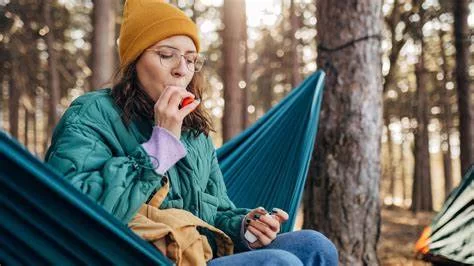Learn how to camp with allergies in the USA safely and enjoyably. Discover expert tips on planning, packing, and managing allergens during camping trips. Find allergy-friendly accommodations and gear at Pine Cliff Resort.

- Understanding-the-challenges-of-camping-with-allergies-in-usa
- Planning-your-allergy-safe-camping-trip
- Choosing-the-right-location-for-allergy-friendly-camping
- Packing-essential-allergy-supplies-for-camping
- Food-preparation-and-meal-planning-for-allergy-sufferers
- Managing-environmental-allergens-while-camping
- Real-life-experience-and-benefits-of-allergy-aware-camping
- Why-pine-cliff-resort-is-ideal-for-camping-with-allergies
1. Understanding the Challenges of Camping with Allergies in USA
Camping is a beloved outdoor activity across the United States, but for people with allergies, it can present unique challenges. Whether you suffer from seasonal pollen allergies, food sensitivities, insect stings, or environmental triggers, camping requires careful preparation to avoid discomfort or serious health risks. Unlike the controlled environment of home, the outdoors exposes you to a variety of allergens such as grass, mold, dust, and insect bites that can worsen allergic reactions. Understanding these challenges is the first step toward planning a successful camping trip that keeps your allergies in check while allowing you to enjoy nature.
Many allergy sufferers in the U.S. avoid camping altogether due to fear of unpredictable allergic reactions. However, with the right strategies and precautions, camping with allergies can be a safe and enjoyable experience. This article outlines practical advice and real-life insights on how to camp with allergies in the USA, helping you embrace outdoor adventures confidently.
2. Planning Your Allergy-Safe Camping Trip
Effective planning is crucial when camping with allergies. Start by researching the region’s common allergens and peak pollen seasons. Websites like the National Allergy Bureau provide pollen forecasts for various U.S. regions, allowing you to select dates and locations with lower allergen exposure. Additionally, check weather conditions, as humidity and rain can influence mold growth and pollen levels.
Pre-trip communication is also essential. Inform your camping companions about your allergies and necessary precautions. Preparing an allergy emergency action plan, including clear instructions on what to do in case of a severe reaction, ensures everyone is aware and ready to assist if needed.
3. Choosing the Right Location for Allergy-Friendly Camping
The choice of camping site greatly impacts your allergy experience. Opt for campgrounds known for well-maintained grounds and minimal exposure to allergens. National parks and private resorts often provide better facilities for allergy sufferers, such as paved areas and clean restrooms. Avoid locations with dense vegetation or heavy insect populations during peak allergy seasons.
Research campgrounds that offer allergy-friendly amenities or quieter natural settings. Some resorts and camping areas even provide allergy-sensitive accommodations and services, making your stay more comfortable. Selecting the right environment reduces the likelihood of encountering severe allergens and supports a more relaxed camping experience.
4. Packing Essential Allergy Supplies for Camping
When camping with allergies, packing the right supplies is vital. Include medications such as antihistamines, inhalers, and epinephrine auto-injectors if prescribed. A first aid kit customized for allergic reactions can be a lifesaver. Also, bring hypoallergenic bedding or tents with mesh screens to reduce exposure to insects and airborne allergens.
Other useful items include portable air purifiers, nasal saline sprays, and barrier creams to protect skin from irritants. Organizing your supplies in waterproof containers ensures they remain safe and accessible throughout your trip. Proper preparation helps you respond swiftly and effectively to any allergic symptoms that may arise.
5. Food Preparation and Meal Planning for Allergy Sufferers
Food allergies require extra caution during camping trips. Bringing your own allergy-safe food reduces the risk of cross-contamination or exposure to unknown ingredients. Pre-packaged meals and snacks labeled for allergy safety simplify meal preparation at the campsite.
Cooking utensils and surfaces should be cleaned thoroughly to avoid traces of allergens. Consider meals that require minimal preparation, such as grilled meats, fresh vegetables, and simple starches, to minimize risks. Planning meals ahead also prevents the stress of last-minute decisions, allowing you to enjoy your camping experience worry-free.
6. Managing Environmental Allergens While Camping
Controlling exposure to environmental allergens is a continuous effort during camping. Wearing long sleeves and pants can help protect skin from pollen and insect bites. Showering and changing clothes after outdoor activities reduces pollen accumulation on the body. Using insect repellents and keeping tents sealed limit contact with stinging insects and other irritants.
Regularly cleaning your campsite and avoiding areas with high mold or dust levels further minimizes allergen presence. Taking these steps helps you maintain comfort and safety throughout your camping trip, enabling you to fully appreciate the beauty of nature.
7. Real-Life Experience and Benefits of Allergy-Aware Camping
Many allergy sufferers share positive stories of how thoughtful planning transformed their camping experiences. For example, Sarah, a lifelong pollen allergy sufferer from Colorado, recounts how she successfully camped at an elevation known for lower pollen counts by coordinating her trip around peak allergy seasons and packing all necessary medications. This careful approach allowed her to enjoy hiking and campfires without allergic interruptions.
Such experiences highlight that camping with allergies is not only possible but can also be highly rewarding. Allergy-aware camping encourages mindfulness about health and environment, deepens connection to nature, and provides confidence in managing allergies in diverse settings.
8. Why Pine Cliff Resort Is Ideal for Camping with Allergies
Pine Cliff Resort offers an ideal environment for campers with allergies in the USA. With well-maintained grounds, allergy-friendly accommodations, and staff trained to assist guests with special health needs, it ensures a safe and enjoyable outdoor experience. The resort’s location features clean air and carefully curated natural surroundings, minimizing exposure to common allergens.
Moreover, Pine Cliff Resort provides personalized service and expert advice on managing allergies while camping, making it a trusted partner for allergy sufferers. Visitors can find a range of suitable camping options, from cabins to tent sites, equipped with amenities to enhance comfort and safety. Choosing Pine Cliff Resort means embracing the outdoors with confidence and peace of mind.
Locust Lane Campground
3800 Creek Rd, Kingsville, OH 44048, USA
Visit Location PagePooh’s Corner
3315 County Rd 28, Watkins Glen, NY 14891, USA
Visit Location Page